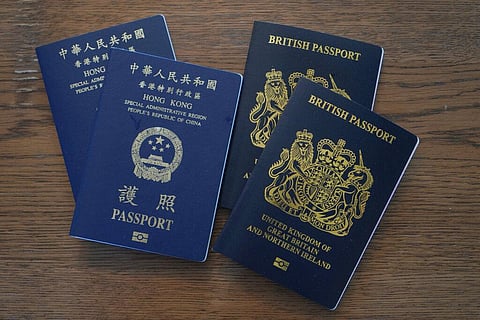

HONG KONG: Canada has seen a sharp increase in Hongkongers seeking residency there since last year after Beijing imposed the draconian National Security Law, according to official data.
South China Morning Post reported that Canada announced its new scheme for Hong Kong residents last November, expediting study and residency applications and creating a new "open work permit" specifically for Hongkongers who recently completed post-secondary studies.
Applications for the new permit open on Monday. It grants holders the right to work in Canada for up to three years. It was also reported that according to a Canadian government database, applications from Hongkongers for new or extended temporary residency visas rose by more than 30 per cent in 2020 over the previous year.
Australia had also seen more inquiries from Hong Kong residents who want to move there, a migration consultant said. Like the UK, both countries announced they would ease their entry rules for Hongkongers.
It was reported that Canada ranked fourth in a Chinese University survey last October which asked Hongkongers considering emigration to state their choice destination.
Britain came first for 23.8 per cent of those polled, followed by Australia (11.6 per cent), Taiwan (10.7 per cent), and Canada (9.3 per cent).
Ryan Liu, 32, holds a BN(O) passport but will take up the Australian offer with his 30-year-old wife. They have no children. Both are nurses, and health care professionals in Australia earn more than in Britain, he said according to South China Morning Post.
However, Australia's borders also remain closed because of the Covid-19 pandemic, and health officials there say they are unlikely to fully reopen this year. "I'm trying to stay positive, and will focus on saving more money while we wait," Liu says.
He wants his children to be born in Australia so that they will have citizenship in a place with more freedom than Hong Kong. "It is up to them to determine their own future," he says. "They understand that more Hongkongers, especially young people, want to leave."
An immigration consultant in Melbourne Simon De Vere said that Hongkongers' interest in moving to Australia in the last two years has been matched only twice before -- after Britain returned the city to China in 1997, and following the Tiananmen Square crackdown.
De Vere, director of migration services at Stirling Henry Global Migration said that migration interests have spiked following the pro-democracy protests that broke out in Hong Kong.
"Australia has always been pretty attractive to Hongkongers, for its climate, rule of law, parliamentary democracy and open, free-trading economic system," says De Vere.
South China Morning Post further reported that official statistics show there were 101,290 Hong Kong-born people living in Australia in 2019.
As of December last year, 12,261 Hongkongers were living there on a temporary basis, the lowest number since at least 2011. However, the number there on graduate visas - 1,130 - was the highest since 2011.
Citing the survey by the Chinese University, it was reported that 43.9 per cent of Hongkongers would emigrate if given a chance, citing lack of trust in the local government, social divisions and shrinking freedoms. That figure was slightly up from 42.3 per cent in 2019, and 34 per cent in 2018, South China Morning Post reported further.
The draconian security law imposed by Beijing on Hong Kong that criminalises any act of secession (breaking away from China), subversion (undermining the power or authority of the central government), terrorism, and collusion with foreign forces, with punishments of up to life in prison. It came into effect from July 1, 2020.